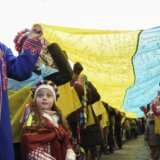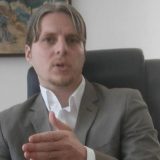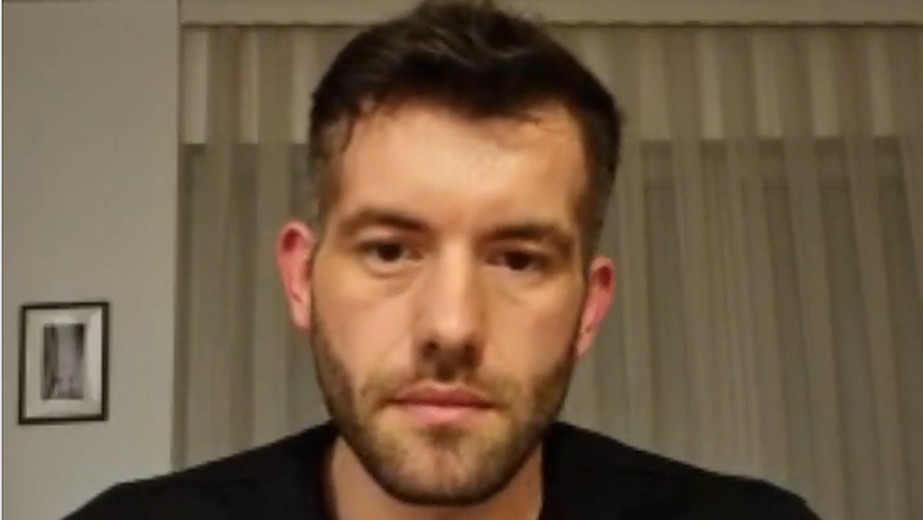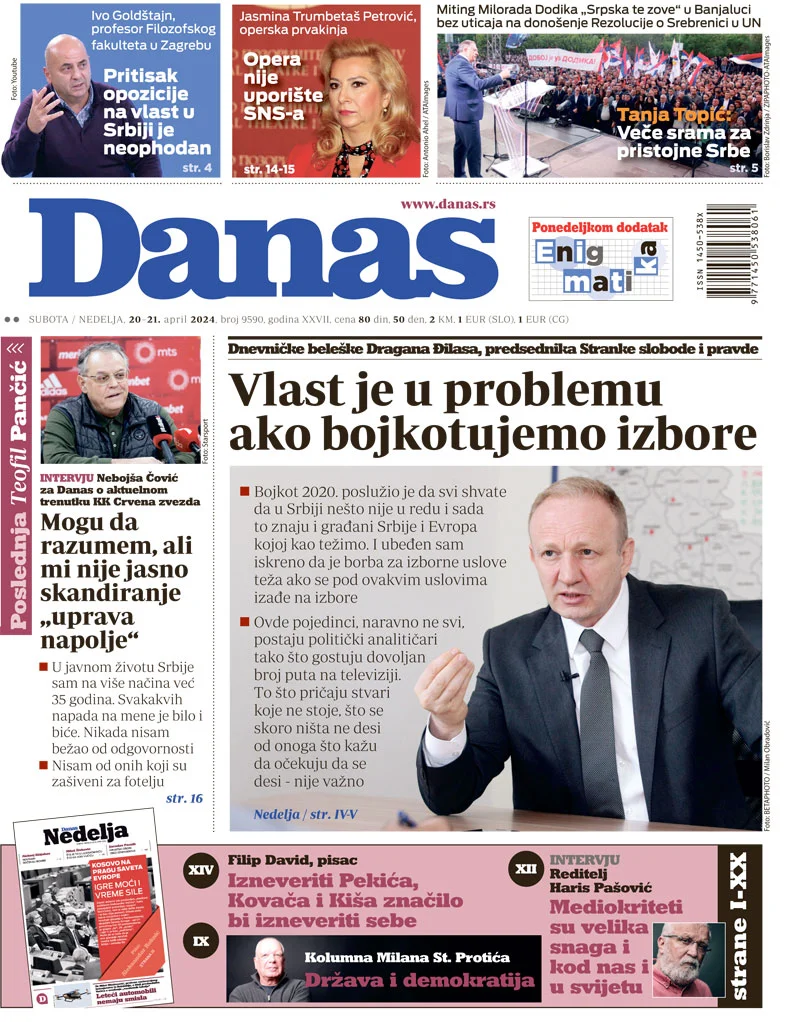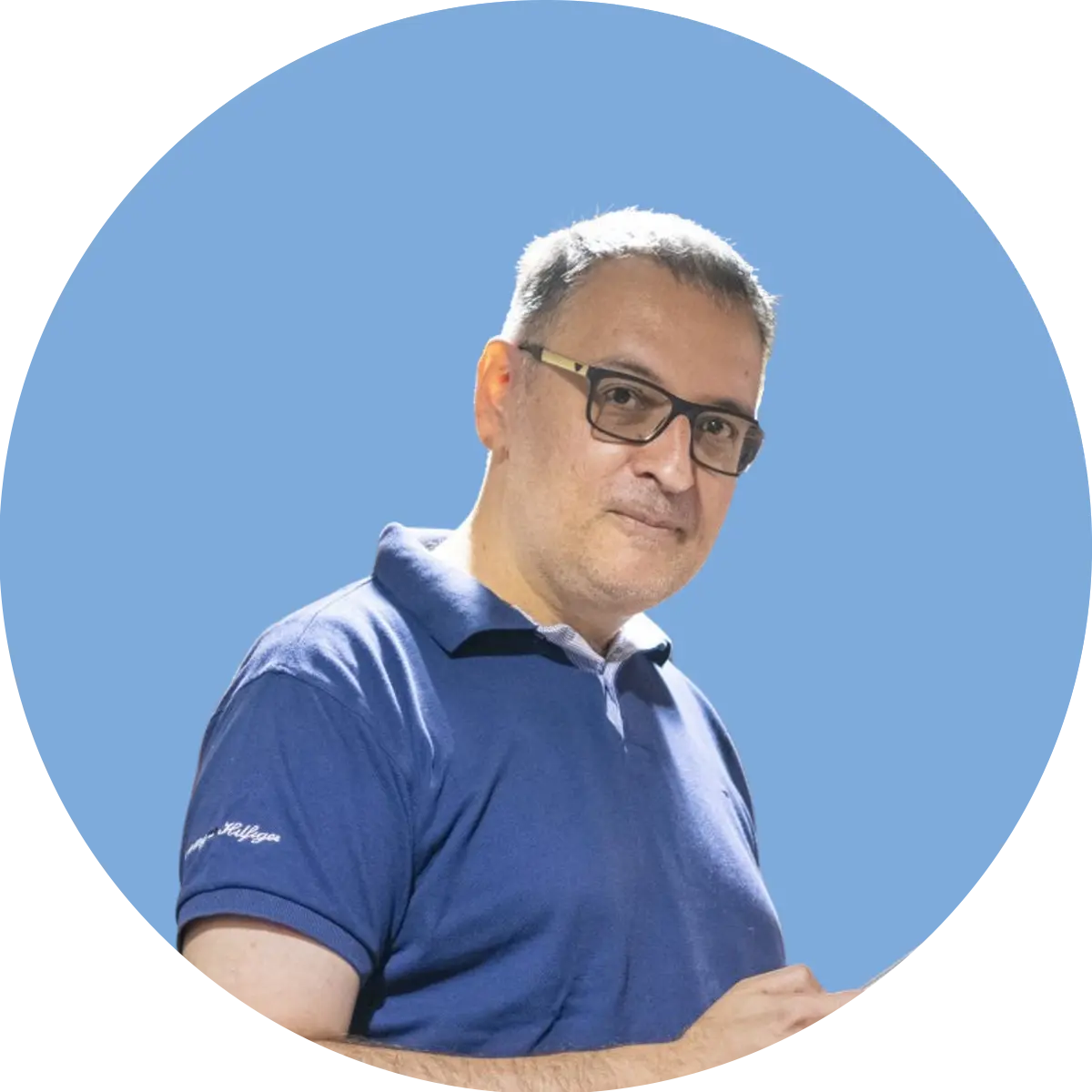
Ljudi na Kosovu nikada nisu bolje živeli, naročito Albanci, na koje se u bivšoj Jugoslaviji uvek gledalo kao na građane drugog reda.
Razumem da ljudi u drugim zemljama koje su nastale raspadom Jugoslavije na „Titovo vreme“ gledaju sa nostalgijom, ali to nije slučaj kada su u pitanju Albanci sa Kosova. Mi uopšte ne žalimo za tim vremenom – poručuje Bljerta Zaćiri (Blerta Zeqiri), rediteljka iz Prištine, u intervjuu u sklopu projekta portala Danas „Druga strana Kosova“.
- Pitanja sa društvenih mreža
Postoji li mogućnost snimanja filmova u koprodukciji umetnika iz Srbije i Kosova?
– Mislim da mi već sarađujemo u različitim oblastima u umetnosti. Čak i na filmu, ponekad angažujemo tehničko osoblje iz Srbije. Verujem da se koprodukcija između dve zemlje može ostvariti teoretski, ali je u praksi to veoma teško, jer je film vrlo skupa i ne tako unosna forma umetnosti, zbog čega je neophodna podrška države. Recimo da među prioritetima naših vlada još uvek nije saradnja po tom pitanju, pa mogu da kažem da je privatna koprodukcija moguća, ali teško ostvariva zbog troškova.
Da li ljudi na Kosovu generalno bolje žive od proglašenja nezavisnosti?
– Naravno. Ljudi na Kosovu nikada nisu bolje živeli, naročito Albanci, na koje se u bivšoj Jugoslaviji uvek gledalo kao na građane drugog reda. Razumem da ljudi u drugim zemljama koje su nastale raspadom Jugoslavije na „Titovo vreme“ gledaju sa nostalgijom, ali to nije slučaj kada su u pitanju Albanci sa Kosova. Mi uopšte ne žalimo za tim vremenom. Sve što smo imali za vreme Jugoslavije, od 1945. do 1992. godine, i kasnije u okviru Srbije, od 1992. do 1999. godine, jeste deset godina napretka i to je sve.
Na primer, podsetiću vas da je prvi univerzitet na albanskom jeziku otvoren 1970. godine, te da je prvi program na albanskom u okviru Radio-televizije Kosova startovao 1975. godine, i emitovan je samo po nekoliko sati dnevno. Mogu da kažem da je najbolje vreme za nas bilo od 1974. godine, kada smo dobili autonomiju, pa do 1989. godine, kada nam je ista oduzeta – uz neke pobune u međuvremenu. Sada moramo da se krećemo veoma brzo i da pravimo velike korake kako bismo sustigli ostatak sveta i to je ono što pokušavamo da uradimo.
Mogu da kažem da smo mnogo napredovali u poslednje dve decenije, naročito u poslednjih 10 godina od proglašenja nezavisnosti. Smatram da međunarodne organizacije ubrzavaju razvoj zemlje, naročito zapošljavanjem mladih generacija koje su se školovale u inostranstvu. Na taj način, starija generacija je ostavila prostora za one koje dolaze i tako Kosovo napreduje.
Da li su uslovi za rad umetnika bolji od kada je Kosovo samostalna država?
– Kosovo prolazi kroz neku vrstu renesanse kada je reč o filmskoj industriji, koju pre rata nismo ni imali. Sve je počelo nakon oslobođenja Kosova, a pravi razvoj započeo je sa proglašenjem nezavisnosti i sa novom generacijom na čelu Filmskog centra Kosova. Oni su povećali budžet, finansirali više filmova i dali šansu mladoj generaciji filmadžija. U početku su finansirali jedan projekat godišnje, a sada finansiraju tri, kao i mnoge kratke, dokumentarne i animirane filmove, te izrade scenarija i postprodukciju.
Pre pet godina, kada smo želeli da snimimo film, nismo mogli da formiramo ekipu samo od Kosovara, pa smo morali da tražimo tehničko osoblje van granica. Sada, može se reći da industrija postoji, da imamo ljude koji rade kao filmski tehničari i koji mogu da žive od toga. To je za nas nešto novo i mislim da je to znak da se krećemo u ispravnom smeru. Takođe, do pre pet godina svi smo sanjali da imamo makar jedan film koji će se takmičiti na “A“ listama festivala. Sada imamo tri, četiri ili pet filmova godišnje koji se takmiče na festivalima i vraćaju se kući sa nagradama. Lično mislim da su uslovi u filmskoj industriji najbolji do sada, ali uvek verujem da to može bolje.
- Pitanja novinara Danasa
Šta bi, prema Vašem mišljenju, trebalo najpre i prioritetno učiniti kako bi se odnosi Srbije i Kosova normalizovali?
– Na to gledam kao na veoma apsurdnu situaciju, jer bi svi kao ljudi trebalo da se ujedinimo oko klimatskih promena i gladi u svetu, te da napravimo i ostavimo bolji svet za našu decu. Međutim, mi to još nismo u stanju da sagledamo. U međuvremenu, smatram da bi Srbija, to jest njena vlada, trebalo da prihvati nezavisnost, da prizna genocid koji se ovde dogodio i da prestane da se više bavi Kosovom. Bez toga je zaista nemoguće normalizovati situaciju. To je kao da ste imali nasilnog roditelja koji vas je fizički i mentalno uništio, i onda kada ste već jednom izašli iz tog traumatičnog iskustva, ne možete normalizovati stvari ukoliko roditelj ne želi da prizna svoja nedela i hoće i dalje da vas kontroliše. Jednostavno ne želite nekog toksičnog u svom životu.
Kako ocenjujete proces normalizacije koji trenutno vode vlasti u Prištini i Beogradu?
– Od svih timova za pregovore koje smo imali, mislim da je ovaj najbolji do sada. To kažem jer je on predvođen mladim i vrlo pametnim političarem, koji je pre svega čovek, i koji brine o dobrobiti svih ljudi koji žive na Kosovu. On je takođe moj prijatelj u koga imam poverenje, i znam da će kosovski tim za pregovore, sa njim na čelu, razgovarati o stvarima koje će poboljšati život građana Kosova. Govorim o gradonačelniku Prištine, Špendu Ahmetiju.
Da li je moguće da proces normalizacije odnosa Kosova i Srbije okončaju političke elite koje su bile aktivne tokom sukoba devedesetih godina?
– Ne, oni to nikada neće uraditi. Oni bi trebalo da budu „izbačeni iz igre“. Sve što su oni učinili donelo nam je gubitke i patnju. Nije mi jasno kako oni i dalje dobijaju podršku, jer ne bi trebalo. Oni bi trebalo da budu osuđeni zbog svojih zločina i trebalo bi im oduzeti moć.
Koja su vaša prva sećanja na sukob na Kosovu?
– Bila sam treći ili četvrti razred osnovne škole. Sećam se da je škola bila pod opsadom specijalnih policijskih snaga. Nije nam bilo dozvoljeno da izlazimo, a napolju su se održavali protesti. Bili smo zaključani u školi nekoliko sati, a izašli smo možda sat vremena pre mraka. Sećam se da je moja mama došla da grupu dece zajedno sa mnom odvede kući, što je uradilo još nekoliko roditelja. Hodali smo praznim ulicama na kojima ste mogli da vidite jedino grupe specijalaca koji su nosili gas-maske.
U vazduhu se još osećao suzavac. Sećam se da je, dok smo se vraćali kući, grupa policajaca krenula ka nama – nišanili su u starijeg čoveka koji je hodao ispred nas. On je počeo da beži, oni su krenuli za njim, a mi smo se uplašili i ušli u jednu romsku kovačku radnju. Ostali smo tamo i posmatrali kroz prozor kako policija bije ljude na ulicama, pod “izgovorom“ da su učestvovali na protestu. Možda i jesu učestvovali, ali su tada samo pokušavali da se vrate kući jer je padao mrak, a ljudima nije bilo dozvoljeno da se kreću. Sećam se da je moja sestra tog dana došla kući sa krvavim rukama, a mog ujaka su zatvorili iz političkih razloga, iako se nikada nije bavio politikom. On je bio učitelj i sve što je želeo je da zaštiti svoje učenike, kako ne bi bili povređeni.
Koji reditelj vam je bio uzor?
– Mogla bih da kažem da je to Kjubrik. Volim njegovu pedantnost u snimanju filmova i zato je on filmski stvaralac koga najviše poštujem. On je svoj posao shvatao veoma ozbiljno, zbog čega je bio u stanju da predvidi toliko stvari i da bude ispred svog, pa čak i ispred našeg vremena. Jedan od mojih omiljenih filmova svih vremena jeste „Dr Strejndžlav“.
- Pitanja reditelj Stevana Filipovića

Jedan od najvećih problema filmskih autora u malim evropskim zemljama danas je finansiranje projekata. Kakva je situacija na Kosovu? Koliko je teško preći put od ideje do trenutka kada se film nađe u bioskopima?
– Na Kosovu nemamo mnogo mesta na kojima možemo da apliciramo za sredstva za naše filmove. U stvari, imamo samo Nacionalni filmski fond i još nekoliko organizacija koje daju male grantove. Dakle, ključne resurse dobijamo od vlade i onda radimo koprodukcije sa drugim zemljama. Na taj način finansiramo naše filmove. Najveći broj koprodukcija radimo sa Albanijom, Makedonijom, a zatim sa Nemačkom, Francuskom, Hrvatskom i tako dalje.
Kakva je situacija u Prištini sa politički „nepopularnim“ temama? Kako su ljudi na Kosovu reagovali na gej aspekt filma „Brak“?
– Kada smo 2012. godine počeli da snimamo film, nije bilo nijedne gej osobe koja se otvoreno deklarisala. Sve je bilo veoma zatvoreno i ljudi su se plašili da pokažu ko su, a naročito nakon incidenta sa magazinom Kosovo 2.0, zbog njihovog broja u kome su se bavili seksualnošću i bili napadnuti od strane ekstremističkih grupa tokom promocije.
Međunarodna zajednica na čelu sa Američkom ambasadom na Kosovu reagovala je i čvrsto stala uz LGBT+ zajednicu, vršeći pritisak na vladu da njihovo pitanje shvati ozbiljnije. Prošle godine organizovali smo prvu Paradu ponosa u Prištini. Paradu su predvodili visoko pozicionirani političari sa Kosova uključujući predsednika države, kao i svi ključni ambasadori. Prvi „Prajd“ bio je mali i činili su ga uglavnom oni koji podržavaju zajednicu, ali je pre nekoliko meseci organizovana i druga Parada. Na njoj je bilo manje političara, više pravih učesnika i bila je mnogo veća od prethodne. Prošla je bez incidenata. Verujem da naši političari sada podržavaju LGBT+ zajednicu jer žele da prikažu Kosovo kao zemlju u kojoj su ljudska prava zagarantovana.
Film „Brak“ finansirao je Filmski centar Kosova, tako da je realizovan uglavnom novcem poreskih obveznika. Kosovo ga je odabralo za svog kandidata za Oskara, u kategoriji stranog jezika, što takođe govori o klimi koja vlada u kosovskoj politici kada je reč o Kvir zajednici. Izuzetno sam srećna, jer je to nešto što vodi ka promeni. Čvrsto verujem da stvari idu ka boljem, ali nas čeka dugo putovanje do tačke na kojoj će Kvir zajednica pronaći svoju slobodu u našoj zemlji.
Šta najviše gledate od novijih serija i filmova? Možete li da navedete par primera koji su vas inspirisali i pokrenuli?
– Ne gledam televiziju i ne znam ništa o mejnstrim medijima. Gledam dosta serija i mnogo ih volim. One su često moj izbor ispred filmova. Čekam nove sezone “Igre prestola“, „Breaking Bad“, „Better Call Saul“, „I love dick“, „Transparent“ i tako dalje.
ENGLISH VERSION
People in Kosovo have never lived better – especially Albanians, who were always considered „second hand“ citizens in the former Yugoslavia. I understand that people from the rest of Yugoslav territories see times of Tito with nostalgia, but it’s not the same for Albanians from Kosovo. We do not regret those times at all – Blerta Zeqiri, the film director from Pristina says, answering the questions asked by the followers of our portal and her Serbian counterparts within Danas online project „Other Side of Kosovo“.
- Questions posted by the social networks followers:
Is it possible to shoot the films coproduced by the artists from Kosovo and Serbia?
– I believe we have been already collaborating in different areas of arts. Even in film, we sometimes hire different technicians from Serbia. I believe a co-production between the two countries can be made in theory, but very hardly in practice, because film is a very expensive form of art (and not very lucrative as well) and therefore you need the support of the government to make it. Let’s say it’s not yet a priority for our governements to collaborate on this level, so I could say that a private co-production is possible, but it is not very likely to happen, due to the cost of it.
Do people in Kosovo generally live better after declaring independence?
– Of course. People in Kosovo have never lived better, especially Albaninans, who were always considered “second-hand” citizens in the former Yugoslavia. I understand that people from the rest of Yugoslav territories see times of Tito with nostalgia, but it’s not the same for Albanians from Kosovo. We do not regret those times at all. All we had under Yugoslavia (1945-1992) and later within Serbia (1992-99) was approximately 10 years of progress and that was all. As an example I can remind you that the first university in Albanian language was opened in 1970 and the first Radio Television in Kosovo (program in Albanian) was opened in 1975 and they started by broadcasting only few hours program per day. Let’s say the best time we had in the former Yugoslavia is from 1974, when the Kosovo autonomy was approved, up to 1989 when it was taken away – with some riots in between.
Now, we must walk super fast in mega steps to catch up with the rest of the world, and that is what all of us are trying to do. I can say that we progressed a lot during these last 20 years, especially the last 10 years after we declared the independence. I believe that the international organisations speed up the development of the country, mostly by hiring the new generation of youngsters that were educated abroad. That is how the old generation left room for the new one and that’s where the progress came from for Kosovo.
Are the conditions for the work of artists better in Kosovo after declaring independence?
– Kosovo is going through some kind of renaissance in the film industry. We didn’t really have the industry before the war. Everything started after the liberation of Kosovo, and the real development started a decade ago (with declaration of independence) and with the new generation of leaders in the Kosovo Film Center. They increased the film budget, therefore they were financing more films and giving opportunities to the young generation of filmmakers. Having financed maximum one feature a year, they now finance three features a year and a lot of short films, documentary films, animated films, script development, post production funds and minority co-productions etc. When we wanted to make a film five years ago, we were unable to create a crew composed by Kosovar people only – we always had to take technicians from abroad. Now, I can say the industry exists, there are people that work as film technicians and can make their living out of this. This is completely new and I believe it’s a sign that things are going in the right direction. Also, five years ago we were all dreaming to have one film that would compete in an A list film festival. Now we have 3-4-5 films a year that are touring the film festival circuit (A list film festivals) and bringing awards home. I personally think that the film industry in Kosovo is at its best so far, but I still believe that it can always get better.
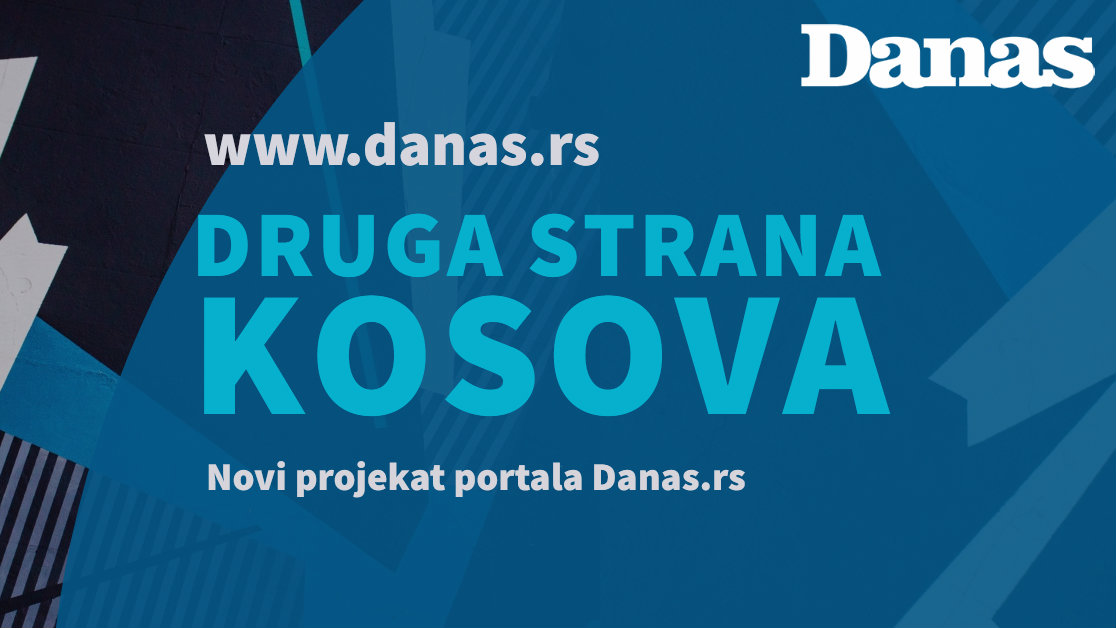
- Questions asked by Danas journalists:
What, in your opinion, should be prioritized first and foremost in order to normalize relations between Serbia and Kosovo?
– Truly, I see this as a very absurd situation, because we should all get together as tough men and fight the climate change, starvation and make/leave a better world for our children, but we are not able to see this yet, so in the meanwhile, I believe Serbia (the governement) should accept the independence of Kosovo and recognize the genocide that happened here and it should let go of Kosovo. Really, without this, it’s impossible to normalize the situation. It’s like you had a violent parent that really destroyed you physically and mentally and once you’re out of that traumatic experience, you cannot normalize the situation if the parent doesn’t recognize his or her wrongdoings and wants still to control you. You just do not want someone toxic in your life.
What do you think about the process of normalization that is currently being led by the authorities in Pristina and Belgrade?
– I think we now have the best negotiation group in comparison to all different ones that were made in the past. I say this only because it is led by our young and very clever politician, who is above all a great man who cares for the wellbeing of all people living in Kosovo. This is also my friend in whom I believe and I know that thanks to the fact that he leads our Kosovar team, we will have real negotiations on the things that will improve the lives of Kosovar citizens. I’m talking about the Mayor of Pristina, Shpend Ahmeti.
Is it possible that the normalization of relations between Kosovo and Serbia might be achieved by the political elites that were active during the 1990s conflicts?
– No. Never by them. They should be kicked out of the game. They made us lose and suffer and that’s all they achieved. I don’t know how we continue to support them. We shouldn’t! They should be judged for their crimes and should be taken the power away.
What are your first memories of the conflict in Kosovo?
– I was a third or fourth grade student in the elementary school. I remember the school was under siege by the special police forces. We were not allowed to go out. There were protests outside. We were locked in school for many hours. Maybe one hour before the dark, we got out of the school. I remember my mum came and took a group of kids (with me included) to send us home. Few other parents also took groups of kids and sent them home. We were walking down the empty streets where you could see groups of special police officers with gas masks on their face. There was still tear gas in the air. I remember while walking home, a group of police headed towards us – they were aiming at an older person that was walking in front of us. He ran, they ran after him and we got scared and entered a Roma blacksmiths atelier. We stayed there looking out the window at the police beating up the walkers, I guess under the „pretext“ of their participation in the protest. It might have been true they took part in the protest, but all everybody was doing was trying to go home because it was getting dark, and people were not allowed to move. I remember my sister came home on that day with her hands all in blood and our uncle was imprisoned for political reasons on that day, even though he was never dealing with politics, he was a teacher and all what he did was trying to make the situation safe for his students, so that they didn’t get hurt.
Who was your role model among film directors?
– Maybe I would say Kubrick. I like his meticulousness in filmmaking and that is why he is the filmmaker that I have the most respect for. Because I believe he took his work very seriously, he was able to foresee so many things and be ahead of his time, and even ahead of our time as well. One of my favourite films of all times is: Dr Strangelove.
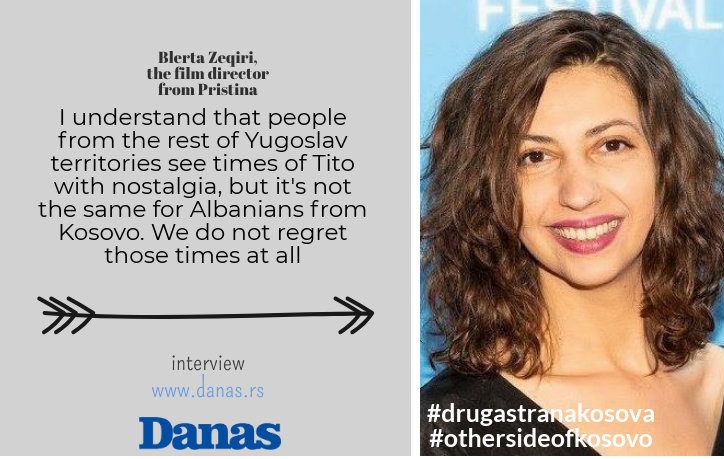
- Questions asked by film director Stevan Filipović:
One of the biggest problems of film authors in small European countries is financing projects. What is the situation regarding that in Kosovo? How difficult is the journey from the idea, up to the moment when the movie is in the cinema?
– In Kosovo, we don’t have many places where we can ask for financing our film. In fact, we have only our National Film Fund and few organisations that give super small grants. So our main resource is our governement and then we usually do coproductions with other countries and that is how we finance our films. Most of the co-productions that we do are with Albania, Macedonia and then Germany, France, Croatia etc.
What is the situation in Pristina with political „unpopular“ topics? How did people in Kosovo react to the gay aspect of the movie „The Marriage“?
– When we started to make the film in 2012, there was not even one gay person that was completely open. They were very closeted and people were fearing to show who they were. Especially after the incident when Kosovo 2.0 magazine issued a number on sexuality and they were attacked by extremist groups during the promotion of this number.
The international community led by the American Embassy in Kosovo reacted and stood firmly by LGBT+ community, pressuring this way our government to take this more seriously. So since that accident, we organized the first Pride in Pristina last year. The pride was led by high level politicians in Kosovo, including the President, and all the major Ambassadors were taking part in it. The first Pride was very small and mostly made of supporters of community, but few months ago, the second pride was organized, and this time there were less politicians, more real people and it was much bigger than the first one. Also, it went without incidents.
I believe that our politicians are supporting the community for now, because they want to paint a picture of Kosovo as a country that guarantees the human rights.
The film was financed by the Kosovo Film Center, so it was mostly made with taxpayers money and Kosovo has chosen „The Marriage“ to be its official Oscar foreign language entry, and this also tells a lot about the climate on Kosovo politics concerning Queer issues.
I’m extremely happy because this is what makes the change. I strongly believe that things have been improving, but we have a long way to go until queer people could find their true freedom in our country.
What series and films are currently the most viewed in Kosovo? Can you name a couple of examples that inspired you?
– I don’t watch TV and I don’t know anything about the mainstreem media. I watch a lot of TV series and I love them a lot. Very often I prefer them to films. I’m waiting for the Game of Thrones, Breaking Bad, Better Call Saul, I Love Dick, Transparent etc.
Pratite nas na našoj Facebook i Instagram stranici, ali i na Twitter nalogu. Pretplatite se na PDF izdanje lista Danas.



